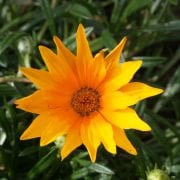“Our habitual patterns are, of course, well established, seductive, and comforting. Just wishing for them to be ventilated isn’t enough. Mindfulness and awareness are key. Do we see the stories that we’re telling ourselves and question their validity? When we are distracted by a strong emotion, do we remember that it is part of our path? Can we feel the emotion and breathe it into our hearts for ourselves and everyone else? If we can remember to experiment like this even occasionally, we are training as a warrior. And when we can’t practice when distracted but know that we can’t, we are still training well. Never underestimate the power of compassionately recognizing what’s going on.” – Pema Chodron
“Change only takes place through action, not through meditation and prayer alone.” -14th Dalai Lama
It is inspiring to know that by living mindfully we can make the changes in our lives that allow us to engage in our lives more skillfully, with wisdom and purpose, eliminating unhealthy habits and tendencies that prevent us from being fully present and attentive in our lives. However, it is also important to remember that these changes take time and require a steady, consistent practice of living mindfully.
While it is critical to develop a meditation practice to develop our attention and mindfulness, our practice will be limited if we leave it on our meditation cushion when we start our day. Meditation is but one aspect of mindfulness, one method to help us cultivate it. Mindfulness is much more than present moment awareness as mindfulness includes and facilitates the cultivation of concentration, wisdom, and the ability to make healthy choices that foster genuine happiness and a meaningful life.
Drawing from my book, The Wisdom of a Meaningful Life, these five tools can help you become successful in developing a consistent practice throughout your day to complement your meditation. You will find that each on its own is beneficial. Together, they are transformative. Developing and strengthening these tools in your life will significantly increase your ability to establish and sustain a mindful, and in turn, meaningful life.
Resolve: Develop a firm resolution to live a meaningful life. This is done by continually calling to mind the incredible opportunities and resources you have and remembering that you won’t have them forever. Your life, like all things, is impermanent. This day is truly precious for it will never come again. Every day brings you opportunity and brings you closer to your inevitable death. Remembering this, resolve to live each day with attention and intention, for it will never come again. You are worth it. Don’t allow another day, yet alone another year, go by without resolving to do your best to become the person you want to be.
Habit: Develop supportive rituals and routines. What we water grows. Whatever we do consistently becomes easier and more natural to us. You can develop healthy habits that support and sustain the life you want. This does not happen quickly, as our old habits are often well entrenched. We need to make a conscious effort to create and sustain new habits. Over time, with sustained effort, they can become as effortless as the habits we already have. Creating the habit of a structured daily meditation and mindfulness practice will truly transform your life.
Develop Positive Potentials: Learn how to transform every event and interaction in your life into a cause for genuine happiness. Every moment of our lives, especially the difficult ones, are meaningful, offering us the opportunity to grow, learn, and develop our highest potentials. In all things that happen, we can continually ask this most important question: What is the most beneficial thing I can do? How can I respond in a way that is in alignment with my values and serves the greater good? Whether you break your leg, win an award, get married, get a flat tire, have a flight delay, or lose a dear friend, you have the opportunity to cultivate happiness.
Selflessness: Abandon the misperception of being the center of the universe. In truth, we are but one among many trying to find their way and have some happiness. Let go of the persistent delusion that you are an independent being and that the world should bend to our will. In fact, let go of the myth that your life would be wonderful if it did. Remember that your genuine happiness comes from how you live your life and that all life, including yours, is interdependent. Everything we have, know, and are able to do is dependent on others, as are all of the causes and conditions that gave rise to the life we have. Also remember that, however you perceive yourself, you are changing all the time. You can continually grow and cultivate the qualities in your life that you find beneficial and meaningful.
Meaningful Attitudes: Consciously cultivate your values, motivation, and beneficial mental states such as the four immeasurable attitudes. Instead of allowing your mind to unconsciously drag you from one thought to another, consciously bring to mind the person you want to be and the life you want to live. Set reminders around the house and at work to help you. Engage in meditations and envision aspirations that you find meaningful and that help you bring your mind to healthy and altruistic states. When your mind is on virtuous thoughts, it is not on unhealthy ones such as anger, resentments, worries, or jealousy. By continuously bringing your mind to such meaningful attitudes, you develop them and they eventually become present on their own.
I hope that you find these tools helpful and are able to integrate them, either individually or together, in part or in whole, into your mindfulness practice. I have found them to be essential and empowering in my personal practice.






